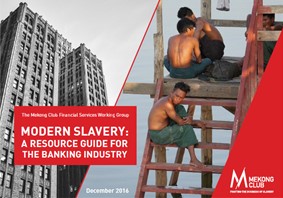Every four seconds, someone is sold into modern slavery somewhere in the world. Every 60 seconds, the criminal industry that supports modern slavery makes more than US$285,000. These statistics, calculated from estimates by the International Labor Organization (ILO), reveal the size and international scope of modern slavery and trafficking, a system that treats human beings as a commodity. These crimes happen in urban metropolises and in remote rural areas, in developing and developed nations. Modern slavery touches nearly every supply chain and no industry is exempt. The sums of money involved are so high, this lucrative and globally pervasive industry is one of the fastest-growing criminal enterprises and sits behind the drug trade as the most profitable organised crime. Per the United Nations, profits from modern slavery and human trafficking are estimated to be as high as US$150 billion a year. This sum is generated through the slavery; abuse and exploitation of an estimated 45.8 million people. A crime that relies heavily on access to financial institutions, a wide range of organisations are not only destinations for slavery and trafficking proceeds, but also conduits to financing every step of the slavery and trafficking journey. Recognizing their central importance to slavery and trafficking operations, financial institutions are seeking ways to strike back. Stopping the arterial flow of money will cause the beast of modern-day slavery to atrophy and shrink, although no one is under the illusion that it can ever disappear completely. That reality must not and should not lessen our efforts to staunch the sustenance (money) that feeds the beast.

